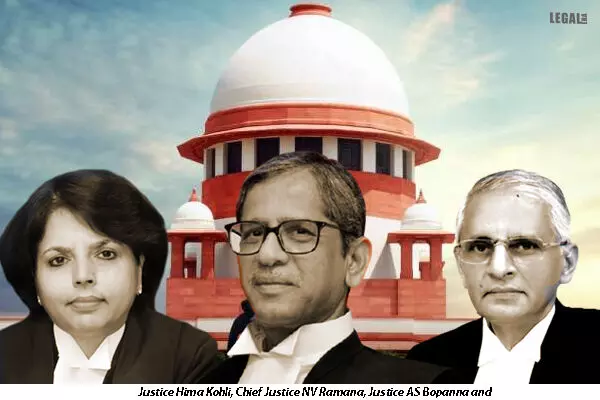- Home
- News
- Articles+
- Aerospace
- AI
- Agriculture
- Alternate Dispute Resolution
- Arbitration & Mediation
- Banking and Finance
- Bankruptcy
- Book Review
- Bribery & Corruption
- Commercial Litigation
- Competition Law
- Conference Reports
- Consumer Products
- Contract
- Corporate Governance
- Corporate Law
- Covid-19
- Cryptocurrency
- Cybersecurity
- Data Protection
- Defence
- Digital Economy
- E-commerce
- Employment Law
- Energy and Natural Resources
- Entertainment and Sports Law
- Environmental Law
- ESG
- FDI
- Food and Beverage
- Gaming
- Health Care
- IBC Diaries
- In Focus
- Inclusion & Diversity
- Insurance Law
- Intellectual Property
- International Law
- IP & Tech Era
- Know the Law
- Labour Laws
- Law & Policy and Regulation
- Litigation
- Litigation Funding
- Manufacturing
- Mergers & Acquisitions
- NFTs
- Privacy
- Private Equity
- Project Finance
- Real Estate
- Risk and Compliance
- Student Corner
- Take On Board
- Tax
- Technology Media and Telecom
- Tributes
- Viewpoint
- Zoom In
- Law Firms
- In-House
- Rankings
- E-Magazine
- Legal Era TV
- Events
- News
- Articles
- Aerospace
- AI
- Agriculture
- Alternate Dispute Resolution
- Arbitration & Mediation
- Banking and Finance
- Bankruptcy
- Book Review
- Bribery & Corruption
- Commercial Litigation
- Competition Law
- Conference Reports
- Consumer Products
- Contract
- Corporate Governance
- Corporate Law
- Covid-19
- Cryptocurrency
- Cybersecurity
- Data Protection
- Defence
- Digital Economy
- E-commerce
- Employment Law
- Energy and Natural Resources
- Entertainment and Sports Law
- Environmental Law
- ESG
- FDI
- Food and Beverage
- Gaming
- Health Care
- IBC Diaries
- In Focus
- Inclusion & Diversity
- Insurance Law
- Intellectual Property
- International Law
- IP & Tech Era
- Know the Law
- Labour Laws
- Law & Policy and Regulation
- Litigation
- Litigation Funding
- Manufacturing
- Mergers & Acquisitions
- NFTs
- Privacy
- Private Equity
- Project Finance
- Real Estate
- Risk and Compliance
- Student Corner
- Take On Board
- Tax
- Technology Media and Telecom
- Tributes
- Viewpoint
- Zoom In
- Law Firms
- In-House
- Rankings
- E-Magazine
- Legal Era TV
- Events
Supreme Court tells Amazon-Future to request NCLAT on CCI order

Supreme Court tells Amazon-Future to request NCLAT on CCI order
The plea against the Delhi High Court stay on Singapore arbitration has been deferred to March 9
The Supreme Court has adjourned Amazon's challenge to the Delhi High Court's stay on the Singapore arbitration proceedings against the Future Group.
It would await the outcome of the appeal filed by Amazon in the National Company Law Tribunal (NCLAT) against the Competition Commission of India (CCI) revoking its sanction for the deal with Future Retail.
The apex court was hearing a Special Leave Petition (SLP) filed by Amazon against the high court's order. It adjourned on being told that NCLAT was hearing the appeal in a couple of days and that the high court's stay order was based on CCI's action.
The bench comprising Chief Justice NV Ramana, Justice AS Bopanna and Justice Hima Kohli said in the order, "The SLP is in one way connected to the outcome of the order challenged before the NCLAT. We direct the parties to request the NCLAT to decide the case."
The bench had earlier issued a notice to the respondents Future Retail and Future Coupons.
Appearing for Amazon, senior advocate Gopal Subramanium submitted that the high court's order had been passed in a 'non-maintainable appeal.' He argued that the single bench's order was passed in exercise of the Constitution of India and hence an intra-court appeal before the division bench was not maintainable.
He pointed out that Future Retail had approached the high court seeking a direction that the Singapore tribunal must hear its plea to terminate the proceedings first before the final hearing on merits. When the single bench refused relief, they had approached the division bench.
Subramanium argued that the appeal before the division bench was not maintainable. H e emphasized that the settled principle was that the objections to the jurisdiction should be raised before the tribunal, including the issues relating to the invalidity of the agreement.
The senior counsel referred to the Arbitration and Conciliation Act, which gives the tribunal the competence to rule on its jurisdiction. He maintained that the division bench had stayed the proceedings by saying that the CCI had revoked the approval for the Amazon-Future deal. The appeal against the CCI order was pending before the NCLAT.
Urging that staying in an international arbitration proceeding was extremely rare, Subramanium said, "It is after 29 years that an international arbitration proceeding has been suspended. The Chief Justice has said on many occasions that the best practices of arbitration internationally were embedded in the Indian system. So to suspend this proceeding now will render a blow to this policy."
While supplementing him, senior advocate Ranjit Kumar submitted that having decided to approach the tribunal with a termination application under the Arbitration Act; the Future Group could not take recourse to the writ proceedings.
The bench questioned why that point could not be raised in the pending appeal before the division bench.
Appearing for Future Coupons, senior advocate Mukul Rohatgi argued that after the CCI revoked the approval for Amazon's deal on the grounds of misrepresentation, the agreement, which contained the arbitration clause, could not be enforced.
Senior advocate Harish Salve, appearing for Future Retail supported his arguments.
On being informed that the appeal in the NCLAT was listed shortly, the bench suggested that it could keep the present SLP pending to await the outcome of the NCLAT proceedings.


